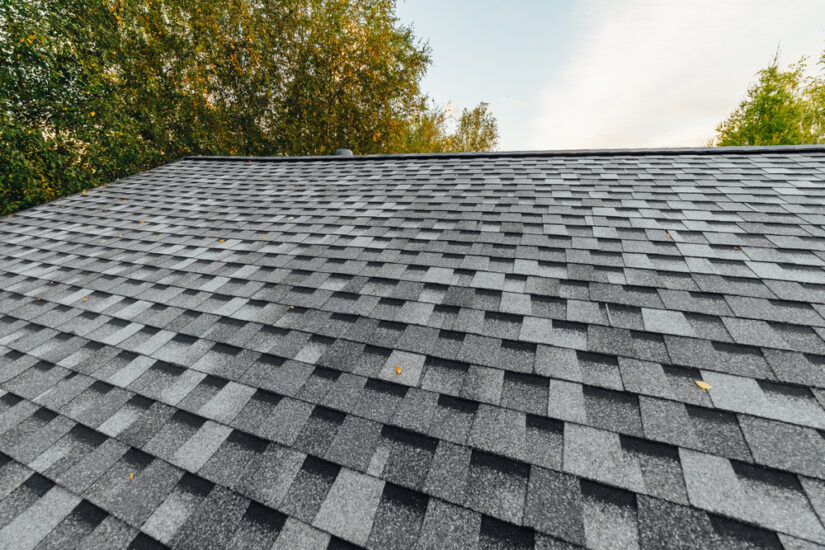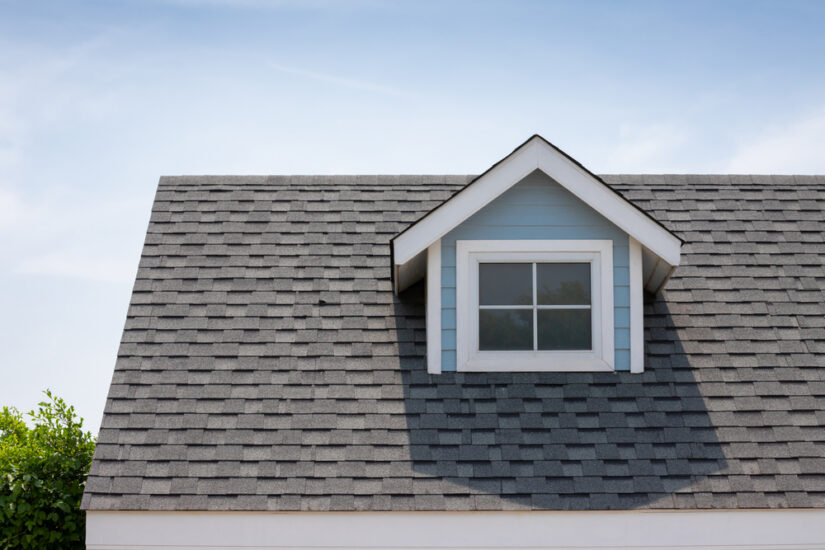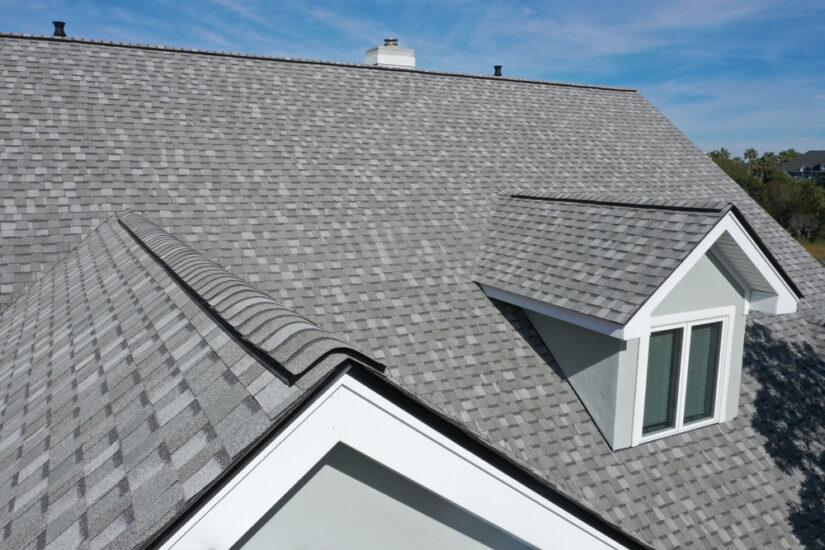How Long Does a Shingle Roof Last?
The roof of your home is one of the first lines of defense from the elements. The roofing materials you choose can protect you from roof leaks, but how long does a roof normally last?
When considering roofing options, many homeowners are rightfully concerned about the longevity of their roofs.
When speaking with shingle roofing contractors it’s important to know that there are various roofing materials available. Asphalt shingle roofs are a popular choice due to their appeal and affordability. However, the type of roof you need and your roof life expectancy will depend on the weather conditions in your area, the roofing company you choose, the manufacturer’s warranty, and other important details you may miss.
Read on to further explore all of the factors that impact the lifespan of a shingle roof or contact Jackson Contracting for essential tips on roof material maintenance, roof repairs, or asphalt roof replacement.

Types of Shingle Roofs and Their Lifespans
Shingle roofs come in a variety of different roof materials. Below are several types of roofs and how long you can expect them to last. Keep in mind, how long your roof lasts, or the quality of your existing roof will depend on its distinct features and lifespans:
Standard Asphalt Shingles
Asphalt shingles are some of the most common and are favored for their cost-effectiveness and simplicity. You can expect your asphalt roof to last between 20 to 30 years. High quality roofing architectural shingles may extend up to 50 years with proper maintenance. Jackson Contracting recommends scheduling an annual roof inspection with a reputable roofing contractor to maintain a resilient roof.
There are many different asphalt roofs. Their expected lifespans are:
- 3-tab shingles: The cheapest asphalt shingle type lasts between 15-30 years.
- Architectural shingles: Also called dimensional shingles, these asphalt shingles are mid-range priced and last between 20-30 years.
- Premium shingles: The most expensive price tag for asphalt shingle materials lasts between 25-40 years.
With proper care and maintenance, your asphalt roof can get the most out of its performance.
Fiberglass Shingles
An average shingle roof lasts 25–50 years. This depends on the quality, durability, and type of roofing material. A fire-resistant and durable subtype of asphalt shingles is fiberglass shingles. They offer a similar lifespan to traditional asphalt shingles with added resilience. The durable layer of fiberglass can make your roof more resistant to severe storms, warmer climates, sunny climates, and extreme temperatures.
Wood Shingles and Shakes
Wood shingles and shakes, usually made from cedar, redwood, or pine offer a rustic aesthetic to your home. However, wood shingles often require more maintenance. With proper maintenance, you can expect your wood roof to last over 30 years.
Composite Shingles
Composite shingles are a mixture of materials like fiberglass, recycled paper products, and asphalt. Composite shingles are becoming more popular due to their durability and resistance to storm damage and they are environmentally friendly. Expect these roof types to last 30 to 50 years, with proper maintenance.
Slate Roofing
Slate tile roofs stand out because of their exceptional longevity. Some slate tiles last over a century. However, it’s one of the most expensive roofing materials and requires a sturdy structural foundation. A slate roof can stand the test of time and typically does not require as much maintenance.
Metal Roof
A metal roof could last over 40 years. Metal roofing is long-lasting, but even durable materials struggle to stand up against demanding climates. High-quality metal roofing materials typically last longer and have longer warranties.
Clay Tile Roofs
Clay tile roofs can last 70+ years with proper maintenance. Clay tiles are beautiful due to their color and are one of the more cost-effective roofing options as well. Clay roofing can protect your home and cut down on your energy costs by repelling heat and keeping things cool.
Factors Affecting Shingle Roof Lifespan
Several key factors influence the answer to the question, how long does a roof last? Your roof’s lifespan and how long you can expect your quality roofing job to last will depend on things like whether it’s properly ventilated, the roofing contractor you choose, and your local climate.
Here are more factors affecting the longevity of your roof:
Material Quality
The lifespan of your roof is directly tied to the quality of its materials. Higher-quality roof types last longer and withstand weather elements better. The average roof lasts 25–50 years, depending on the quality, durability, and type of roofing material.

Installation
Poorly installed roofs are prone to issues like leaks and wind damage. This can significantly reduce their lifespan. Have your roof replaced by seasoned roofing contractors to make your roof last.
Climate
Your local climate plays a significant role in its longevity. Roofs in areas with severe weather conditions, such as hurricanes, heavy snow, hail, or high winds, may not last as long as milder climates.
Roof Slope and Orientation
The angle of your roof will affect its longevity. Steeper roofs and sloped roofs tend to shed water and snow more effectively, reducing moisture-related damage. Flat roofs may have trouble getting rid of excess water.
Ventilation and Insulation
Attic ventilation and insulation are vital in preventing heat and moisture buildup. Buildups can damage the roof structure and shorten your roof’s lifespan. It won’t matter if you choose an asphalt shingle roof, metal roofs, three-tab asphalt shingles, or clay tile if your attic isn’t properly ventilated.
Maintenance: Prolonging the Life of Your Shingle Roof
Regular maintenance is imperative for getting the most out of your asphalt shingle roof. Jackson Contracting recommends the following:
- Bi-annual inspections, especially after severe weather
- Cleaning gutters and downspouts to ensure they are clear of debris and prevent water buildup
- Removing moss and algae will prevent your asphalt roof from deteriorating faster
- Replacing damaged shingles may prevent further damage to your roof and underlying structures
- Checking flashings around chimneys, vents, and skylights can prevent leaks and damage to your asphalt shingle roof
When to Replace Your Asphalt Roof
Understanding when to replace your roof is crucial for maintaining the integrity of your home. Signs that indicate you may need an asphalt roof replacement may include:
- Age
- Widespread damage
- Persistent leaks
- Sagging roof deck
Choosing the Right Contractor for Roof Replacement
Selecting the right asphalt roof contractor is important for successful roof repairs or replacement. Search for experienced, licensed, reputable, and insured roofing professionals. Assure they provide a detailed estimate and warranty for their work before hiring them.
Eco-Friendly Roofing Options
Sustainable and eco-friendly roofing options will help protect our planet. Materials like cool roofing shingles, recycled shingles, and solar shingles are environmentally friendly options for conscious homeowners.
Advanced Maintenance Techniques for Shingle Roofs
Homeowners can employ the following roof repair and maintenance techniques to prolong the life of their shingle or metal roofs:
- Periodic professional inspections
- Applying protective coatings that enhance UV rays resistance and waterproofing
- Repairing small problems like cracks or lifted shingles immediately
- Replacing missing shingles
- Tree maintenance
- Attic insulation and ventilation help regulate temperature and moisture
Addressing these issues with a seasoned roofing contractor could prevent a costly full roof replacement.
Shingle Manufacturing
The roofing industry has made advancements in shingle manufacturing. This has led to more durable and efficient materials. Innovations include:
- Improved asphalt formulations that are more resistant to weathering and UV damage
- Cool roof technology reflects more sunlight and absorbs less heat
- Enhanced wind resistance offers better performance in high-wind conditions
Budgeting for Roof Replacement
The cost of your roof replacement can drastically vary. Budgeting for a roof replacement requires an understanding of the following factors that influence the cost:
- Roof size and complexity
- Material choices
- Labor costs
- Disposal of old materials
It’s important for homeowners to get multiple quotes and consider the longevity and value of their roofing choices before making any decisions.

FAQ on Roof Longevity
How Often Should Shingles Be Replaced?
Shingle roofs typically require replacement every 20 to 30 years, depending on the material and environmental conditions.
How Do You Know When Roof Shingles Need Replacing?
Here are some signs that your roof shingles need replacing:
- Visible damage with cracked, curling, or missing shingles
- Excessive granule loss from asphalt shingles
- Persistent leaks or water stains on ceilings or walls.
- Age
What is the Average Life Expectancy of a Shingle Roof?
The average life expectancy of a shingle roof varies by material:
- Asphalt shingles can last 20 to 30 years
- Wood shingles last 25 to 30 years
- Composite shingles typically last 30 to 50 years
- Slate roofs can last over 100 years in some cases
Should You Put a New Roof Over Old Shingles?
Overlaying a new roof over old shingles is possible, but it is generally not recommended. Overlaying may mask underlying issues and add extra weight to the roof structure.
Understanding the factors affecting the lifespan of your roof, along with regular maintenance and timely replacements, could ensure your home remains safe and well-protected. Consider all of the factors, including material choices, environmental conditions, and budget, then consult with a professional to make the best decision for your home.
